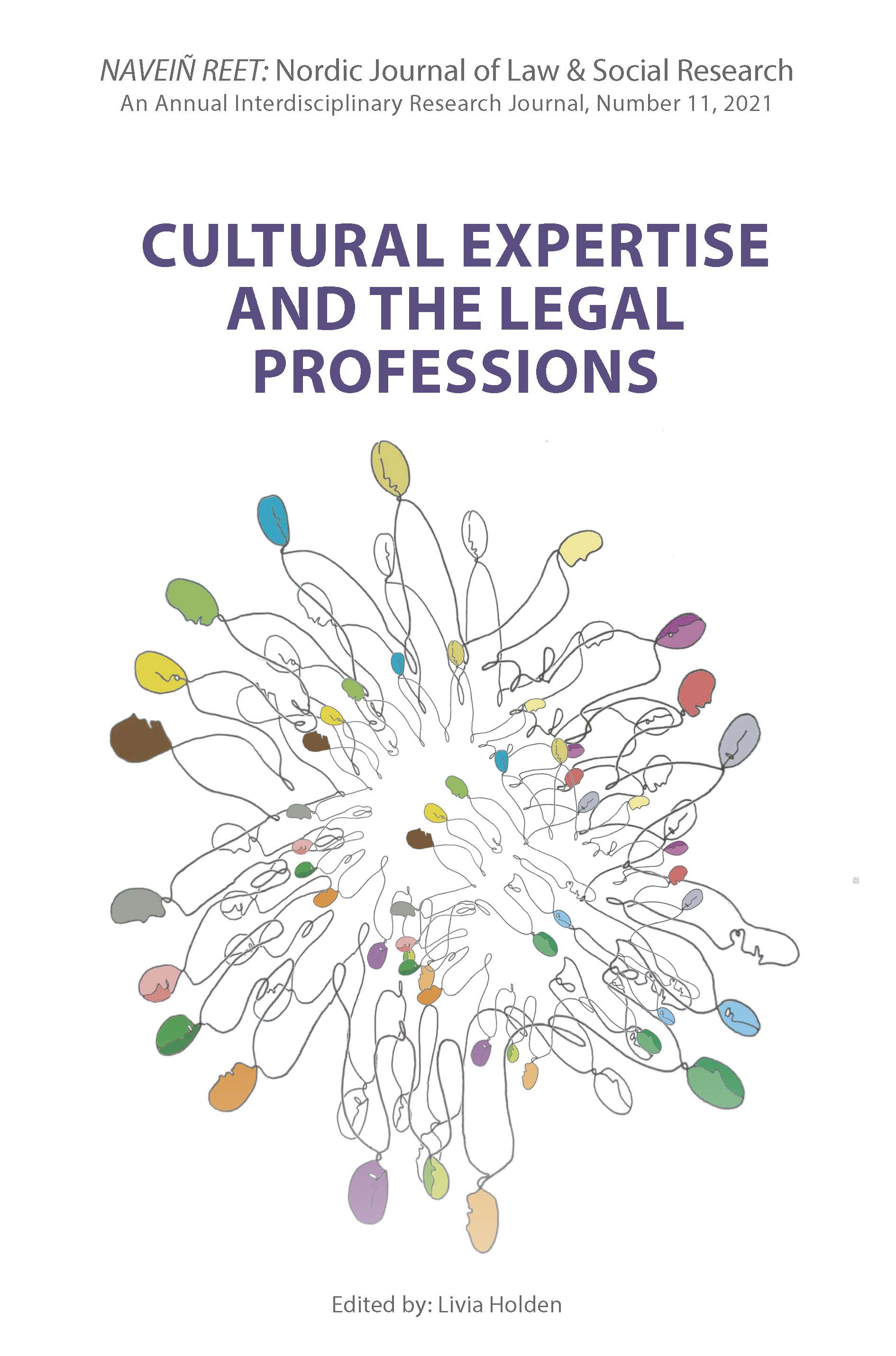The Judge and the Anthropologist
Cultural Expertise in Dutch Courts
DOI:
https://doi.org/10.7146/nnjlsr.vi11.132007Abstract
As a judge, I have the feeling that culture is related with anything and everything – and with nothing at all. In most criminal cases, it hides underground, not visible, not recognized and is rarely, if ever, brought up as an argument by the participants. In my experience, even though an anthropologist can see remarkable cultural features given the way proceedings are organized, the judge, in managing the proceedings, will try to keep such features out of sight. As such, in my view, anthropologists offer an outsider’s view whilst the judge, as part of the legal system, is an insider. This paper starts from a sceptical standpoint about cultural knowledge, in which I argue that the judge, as a legal professional, does not need to take into consideration that law and procedures are embedded in a dominant culture because they are more interested in a case-by-case approach, trying individuals for their concrete deeds. This paper elaborates on the potential common ground between anthropological and legal methods and concludes with my first-hand experience on the so-called Context case in which an anthropologist was appointed as expert for a well-known terrorism case in the Netherlands. This case epitomizes, in my view, the challenges and the potential benefits of integrating cultural expertise in court.
Downloads
Published
How to Cite
Issue
Section
License
Counting from number 12 (2022), articles published in NNJLSR are licensed under Attribution 4.0 International (CC BY 4.0). Readers are allowed to copy and redistribute the articles in any medium or format, to adapt and revise the articles, and use the articles for commercial purposes, provided that the readers give appropriate credits.
No Creative Commons licenses are applied on articles in number 1 (2009)-11 (2021). All rights reserved by the authors. Readers are allowed to download, read, and link to the articles published in volume 1 (2009)-11 (2021), but they may not republish or redistribute these articles without permission of the authors.

